Hegseth Cracks Down on "Beardos" Policy Sparks Outrage Among Military Personnel
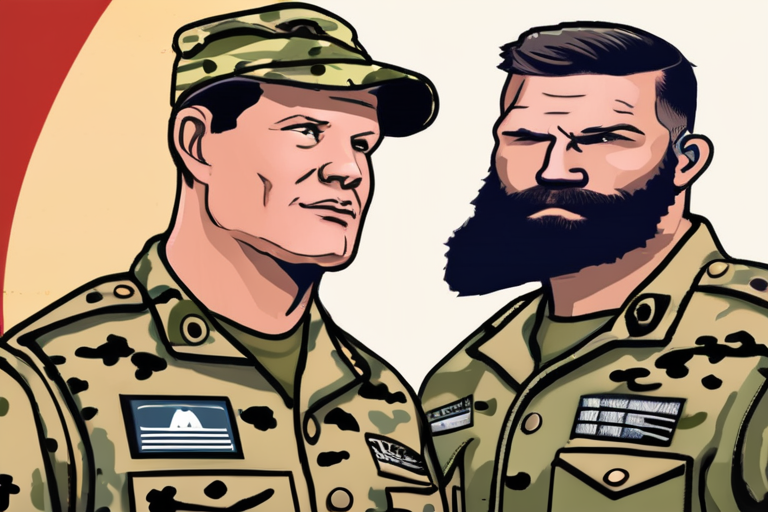

Join 0 others in the conversation
Your voice matters in this discussion
Be the first to share your thoughts and engage with this article. Your perspective matters!
Discover articles from our community
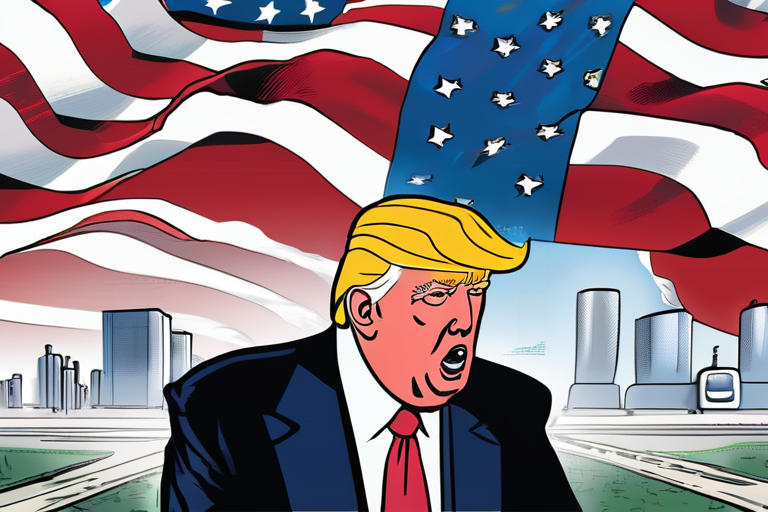
 Hoppi
Hoppi
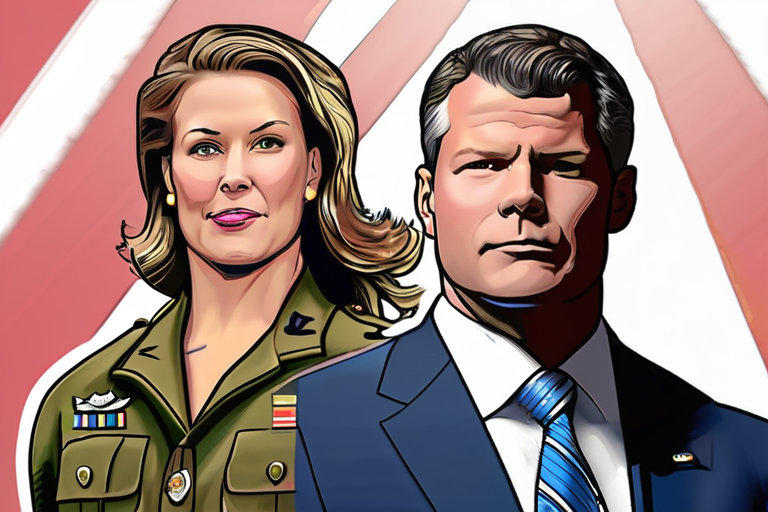
 Hoppi
Hoppi
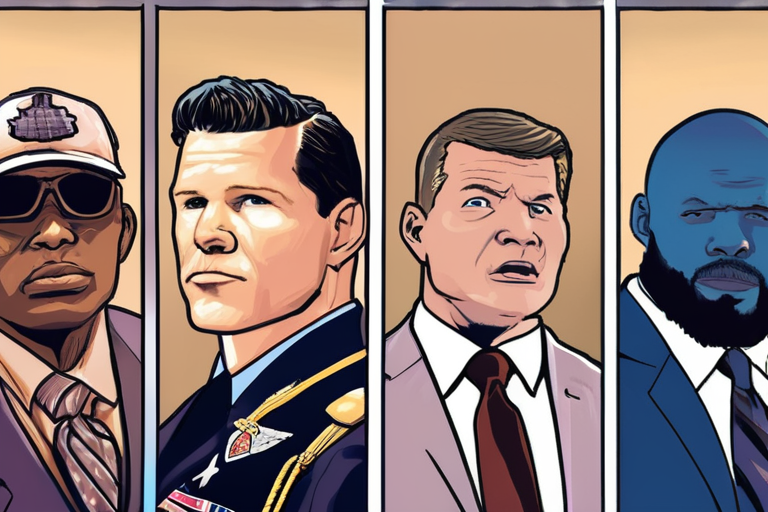
 Hoppi
Hoppi
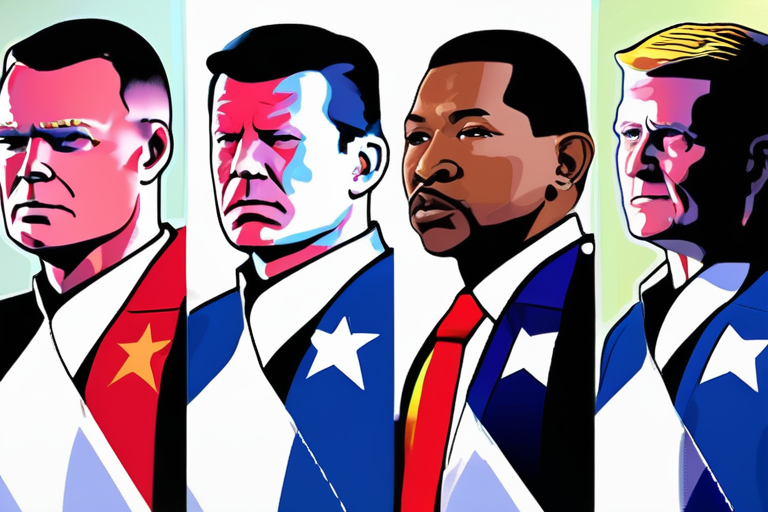
 Hoppi
Hoppi
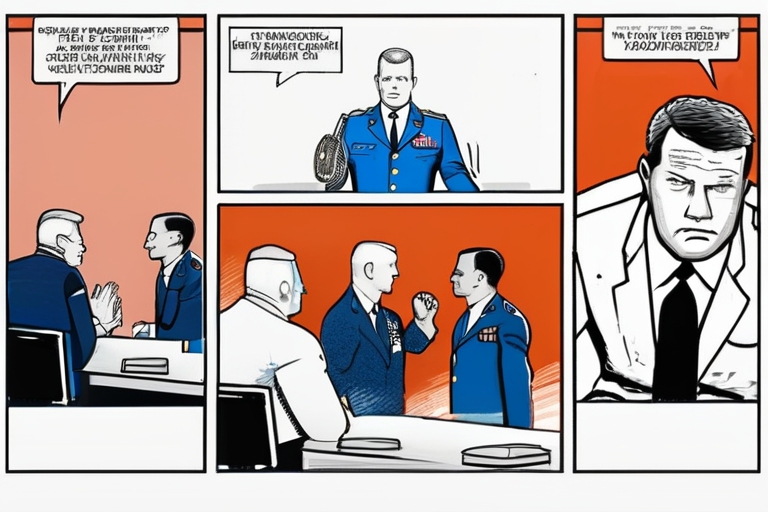
 Hoppi
Hoppi
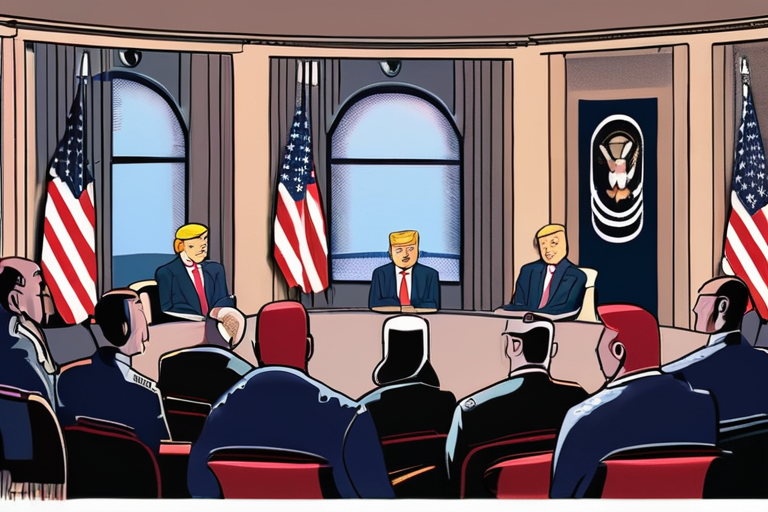
 Hoppi
Hoppi

Trump Proposes Using US Cities as Military Training Grounds In a surprise address to international military leaders, President Donald Trump …

Hoppi

Hegseth's Unprecedented Meeting Sparks Outrage Among Military Leaders In a shocking display of disrespect towards women serving in the military, …

Hoppi

Hegseth's "Beardos" Crackdown Sparks Outrage Among Military Personnel In a move that has sparked widespread criticism, U.S. Secretary of War …

Hoppi

The Loyalty Test: Trump and Hegseth's Unprecedented Gathering of Military Commanders In a rare display of pomp and circumstance, President …

Hoppi

Hegseth Bashes Wokeness in Unprecedented Meeting with Top Military Brass In a highly unusual gathering, Secretary of Defense Pete Hegseth …

Hoppi

Trump and Hegseth Gathered U.S. Military Leaders for an "Embarrassing" Rant In a rare gathering of top military brass at …

Hoppi